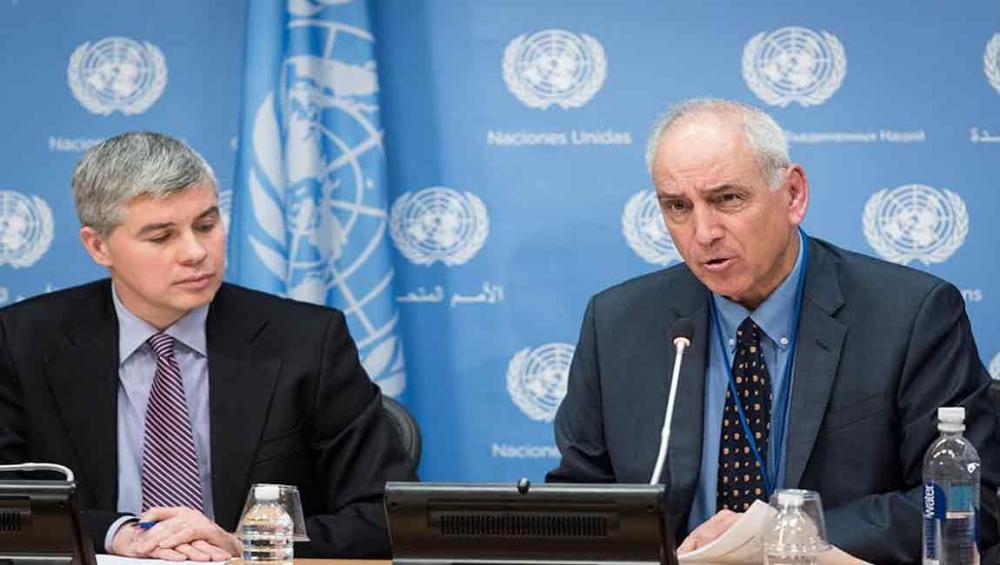Just Earth News | @@justearthnews | 08 Jul 2017

UN Trust Fund for HumanSecurity
“The human security approach is instrumental to sustainable development, inclusive peace, justice and the well-being and dignity of all people. It is in fact central to the 2030 Agenda,” said Amina J. Mohammed, Deputy Secretary-General, addressing the event.
As outlined by the General Assembly, human security is a people-centred framework based on national ownership, which according to Mohammed, aims to support governments in responding to threats impeding their people from living free from fear, want and indignity, while recognizing the complexity and interconnected nature of on Friday’s challenges.
“It really does compel us to find coherent, comprehensive and integrated solutions that combine the expertise and resources of the United Nations system with those of governments, regional and sub-regional organizations, the private sector, civil society and communities on the ground,” she explained.
Based on lessons learned from over 15 years of supported programming by the UN Trust Fund for Human Security, the approach promotes greater coordination, advancing integrated actions for concrete results in improving the lives of peoples and communities.
At the UN, said Mohammed, the Secretary-General has embarked on a series of review processes and reforms, including management, development and the peace and security architecture, to fulfil his vision of a UN system that is less fragmented and much more efficient.
“Their underlying premise – and promise – is prevention,” she noted. “Human security is an essential part of these processes.”
By considering current and emerging risks and vulnerabilities, human security is an effective tool for prevention, she added. The human security approach can also help guide efforts to bridge the gap between humanitarian assistance and longer-term development aid.
She went on to say that programmes supported by the UN Trust Fund for Human Security have illustrated “the power of catalytic interventions that pool resources and establish strong partnerships and better coherence of results on the ground.”
“Let us work together to advance prevention and promote inclusive solutions that enhance people’s ability to live together in peace and well-being, with much stronger confidence in a sustainable future,” she stated.
General Assembly President Peter Thomson opened the event saying, “human security provides us with a focussed, analytical lens and programming framework to aid the actions we are taking towards achieving the SDGs.”
He added that with its direct focus on people, “the concept of human security finds in the SDGs an agenda that is ultimately about creating the conditions – social, economic and environmental – in which humanity can flourish.”
On Friday’s event was organised by the UN Human Security Unit, in partnership with the Government of Japan and the Human Security Network (Austria, Chile, Costa Rica, Greece, Ireland, Jordan, Mali, Norway, Panama, Slovenia, Switzerland, Thailand and South Africa, as an observer).
Also addressing the event, Yukio Takasu, the Special Adviser to the Secretary-General on Human Security, said that it is essential to identify and address the root causes of human insecurity, which are often interlinked and multifaceted.
“There is no simple, straightforward solution. Through the human security approach, we will be able to address deep-rooted insecurity and implement the SDGs effectively,” he stated.
“We have to identify first who has been left out in equitable progress and are at the greatest risk of falling behind… and take action on what needs to be done.”
He added that there is a consensus on the need to adopt an integrated approach to achieve the SDGs, which no single government, entity or international organization can do alone.
“We must strengthen a multi-stakeholder framework of cooperation at the national, regional and global levels. Partnership of all stakeholders, civil society and the private sector is absolutely essential for success.”